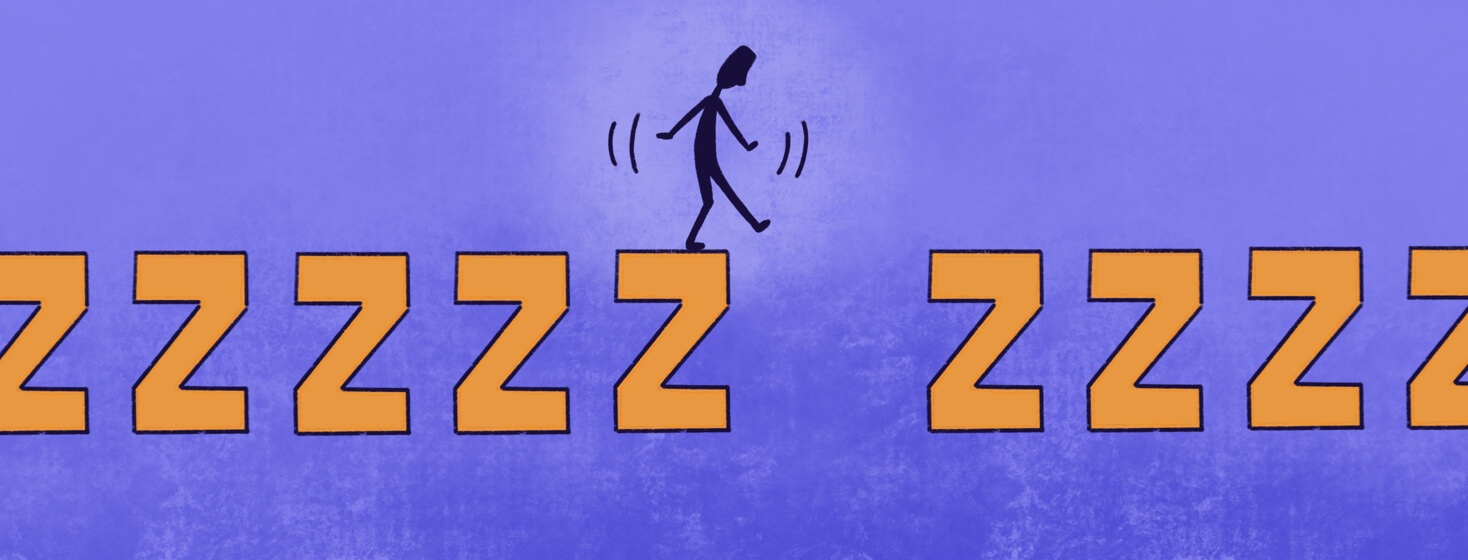Coping With 'Sleep Blips'
Tracy Hannigan’s recent blog post on “sleep blips” resonated with me. Once you’ve struggled with insomnia, you’re always on high alert for the next bout of poor sleep. Having a way to understand and cope with the inevitable blip can spell the difference between recovery and a return of insomnia.
As a Cognitive Behavioral Therapy for Insomnia (CBTI) provider and occasional insomniac, I’ve applied many CBTI techniques to my own life. I’ve mostly been successful at regulating my sleep. I rarely worry about falling or staying asleep. I look forward to restful sleep most nights.
Sleep blips still occur
Still, I occasionally experience the “sleep blips” that Tracy describes. This is unsurprising since even the healthiest sleepers will occasionally experience trouble sleeping. This is usually due to stress, illness, or a change in routine or environment. These blips typically last a couple of nights until the stress resolves. But the “blips” can be dangerous for individuals with a history of insomnia because we often assume insomnia is rearing its ugly head again.
Coping with sleep blips
Understanding sleep blips helped me develop my own set of coping skills for when they arise:
I remind myself that sleep blips are normal and expected
I’m destined to have a few nights of poor sleep every now and then, just like everyone else. They are not a sign that insomnia is returning.
I remember that I’ve functioned on little sleep before
I battled insomnia for years and had to get through many days while feeling fatigued and cranky. There were many days that I had to work through an 8-, 10-, or 12-hour day while sleep-deprived. I was able to do what I needed to, even if it was tough. And I could do it again if I have to.
Worrying about it won’t help
The more I try to control my sleep or predict how long the blip will last, the less likely I will be able to relax and drift off to sleep.
The blip might be a sign that I’m stressed about something in waking life
Many times I know what’s behind my blip: maybe I don’t feel well physically, or I’m stressed out about something at work. But sometimes, the blip seems to come out of nowhere and that is often a sign that I’m more concerned about something in my life than I’m realizing. I’ve found it helpful to think about the unexpected blip as a cue to check in with myself. Am I more upset about something than I want to admit? Do I need to address a situation differently or build in more time for self-care?
Enjoy the extra hours
I don’t get to choose when a sleep blip occurs, but I do get to choose how to spend that extra time awake. Rather than worry about the blip, I’ll use those hours to read a good book or catch up on Netflix. Choosing to enjoy the time awake changes my whole attitude and leads me to fall back asleep a lot faster than I would if I worried about it instead.
Don’t revert to old habits
Possibly the worst thing I could do during a sleep blip is go back to bad habits like spending time awake in bed or drinking extra coffee the next day. Those unhealthy habits make it much more likely that a blip will turn into a relapse of insomnia. Maintaining my healthy sleep habits helps my sleep blip pass on its own.
If you’ve experienced success in treating your insomnia, try to remember that the occasional night of poor sleep is normal and expected. If you’ve found a way to put those sleep blips into perspective, please share your tips below.

Join the conversation